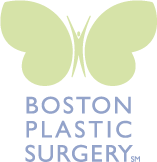Can AI Help You Find the Perfect Diet?
Posted on June 28, 2019 | by Boston Plastic Surgery
Eating is a basic life function: it should be second nature. Yet, figuring out how to eat for optimal health is difficult for many of us.
Diet books promising to help us lose weight, gain energy, and live happily ever after have made best seller lists for decades—and yet Americans continue to struggle. Scientific studies about “good” and “bad” foods also regularly appear, which might seemingly settle the issue of what’s best to eat—but they often contradict what was considered to be nutrition gospel in the past.
A big part of the problem, according to this New York Times Op-Ed piece, “The AI Diet,” is that for decades we’ve assumed that there is one “best” diet that we all need to follow if we want to live a long, healthy life. But thanks in large part to new technology, we are learning just how much of an impact our genes, gut microbes, lifestyle, and countless other factors have on how each individual’s body reacts to and uses food.
As medical professionals who specialize in and understand the value of totally personalized care, we find this fascinating. Keep reading to see how AI fits into the picture.
Rethinking the concept of a good diet: it’s personal!
As the author explains:
“Only recently, with the ability to analyze large data sets using artificial intelligence, have we learned how simplistic and naïve the assumption of a universal diet is. It is both biologically and physiologically implausible: It contradicts the remarkable heterogeneity of human metabolism, microbiome and environment, to name just a few of the dimensions that make each of us unique. A good diet, it turns out, has to be individualized.”
We all have unique genes, gut microbiome ecologies, lifestyles, cultural backgrounds, and personal tastes. What foods work for some people may not agree with others. If you have tried all the popular diets: the Mediterranean, Paleo, Vegan, etc., but not seen the results you were “supposed to,” it is likely that these one-size-fits-all eating plans are not suited to your unique needs.
Is Artificial Intelligence the Answer?
To truly know what foods (and in what proportion) are healthiest for you as an individual, you would ideally track and analyze thousands of different data pieces, including your DNA, the full range of bacteria living in your gut, lifestyle habits, activity levels, sleep patterns, etc.
While this aggregated information currently would be difficult to collect and process on a regular basis for individuals, artificial intelligence may soon have the power to quickly interpret and cross-reference a wide range of personal health data. Many experts believe this will lead to development of algorithms which provide personalized diet recommendations.
That’s the future, but there are things you can try now
In the meantime, you can benefit from current technology or consider other approaches to better understand what individualized diet may be best for your body.
- There are already companies that can provide some basic insights and food recommendations based on DNA and gut microbiome tests.
- Intuitive Eating is a method of carefully “listening” to your own body and thereby understanding which foods are right for you.
- Individualized diets have long been a key part of Traditional Chinese Medicine, which offers dietary guidance based on details of your specific constitution and current health.
- Fitting food choices are important, but exercise and sleep are also key to vibrant health. Fitness and sleep tracking technology can help with understanding and improving habits.
It’s good to know that one-size-fits-all dietary rules may be a thing of the past, and we’re excited to see what the future brings. Let us know what you think in the comments below!
